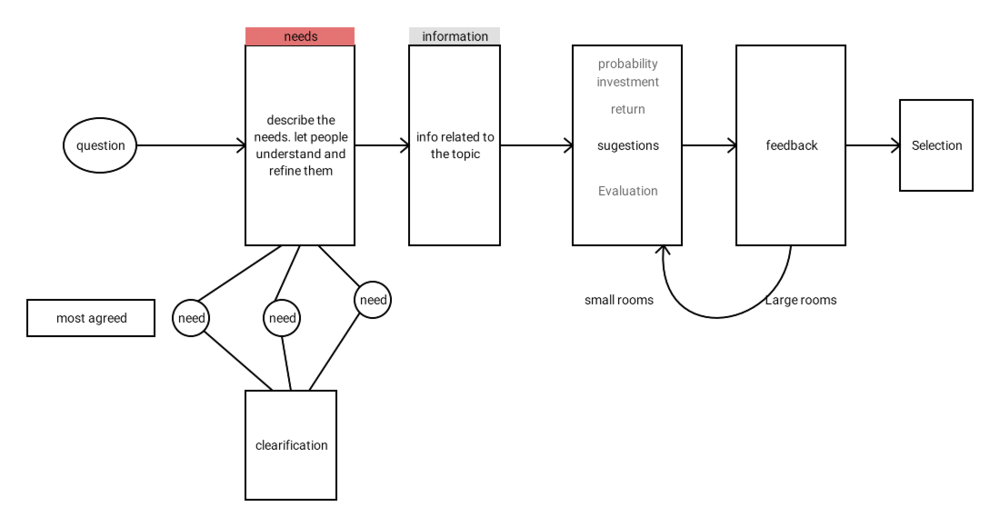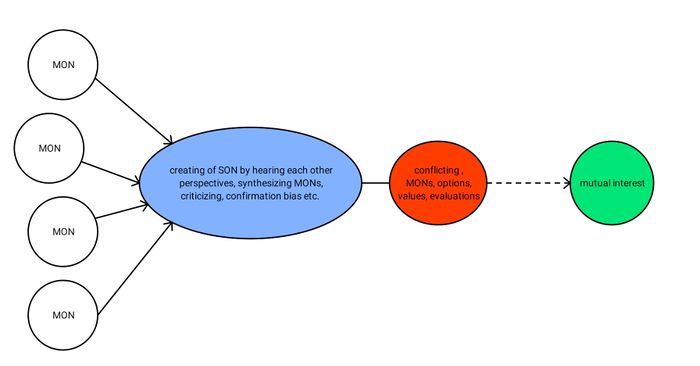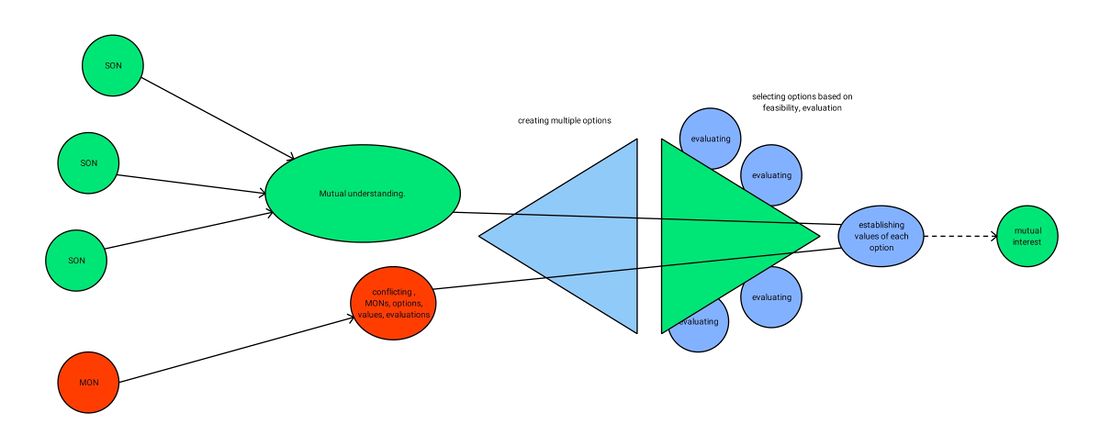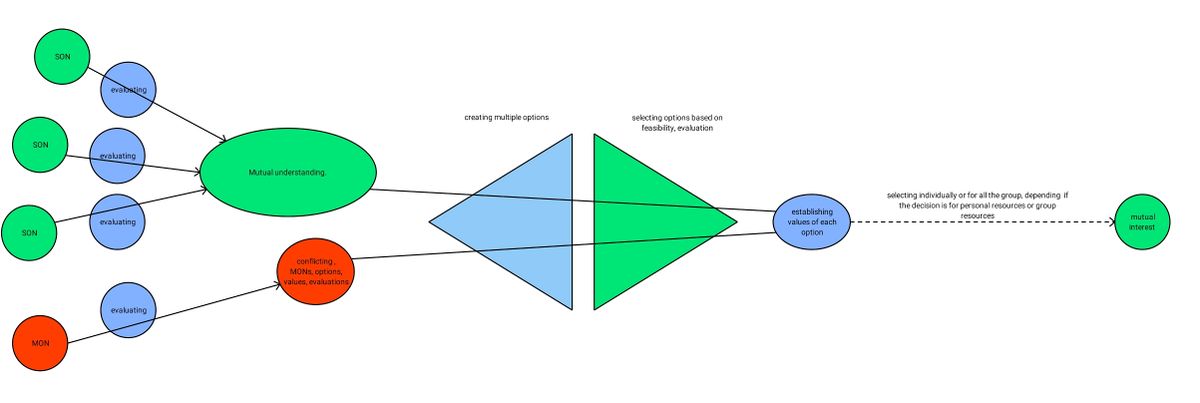General process of deliberation
From Deliberative Democracy Institiute Wiki
The general processes of deliberation try to describe the process that all deliberations go through.
Contents
Basic mechanism
The purpose of the deliberative process is to bring the members of a group from the initial state to the state of deliberative decision.
All members have, needs, alignment of interests, psychological and MON states (we will call them deliberative states). During deliberation, the process should transform the members to optimized states, which will result deliberative decision.
Overall process
Mutual Interests
All deliberation starts with people with mutual interests. At the beginning of the deliberation, it is likely the members will have more MONs than SON.
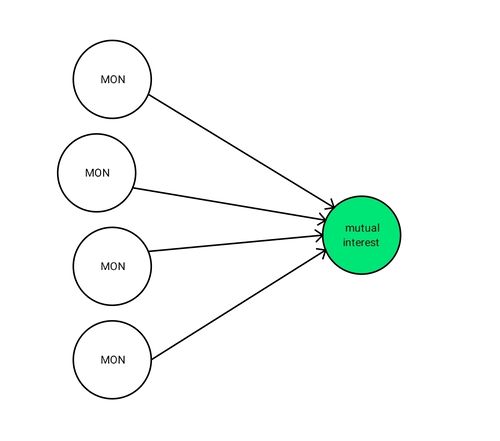
Conflicts
When the members will try to decide upon a preferable solution to their mutual interest, they will probably have conflicting views, understandings, solutions, etc.
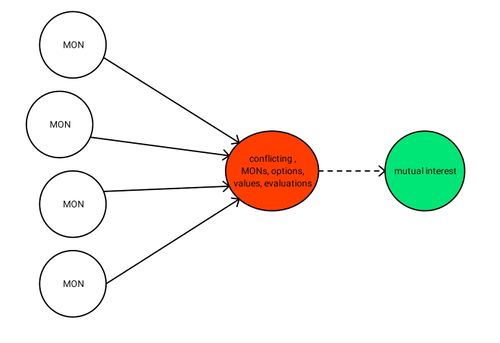
Creating SON
The conflicts in deliberation should initiate a process of learning. The process will include hearing different world-views, understanding, and solutions. The main ais is to creating better mutual understanding and increasing the SON. This process may engage listening, clarification, criticizing, synthesizing, and the ability to be able to view the issues through different world views.
It is perfectly all right not to be able to create unanimous SON. Although it is preferable to create a son, for mutual understanding, it is natural, that not all members will agree upon the issues that are discussed.
Creating options
The next element in deliberative decision making is creating alternative options to solve the common challenge. There are many methods to create a diversity of options. and in different situations the amount of diversity may alter, for instance in fast decisions, we might have a small number of options, while in a large-scale decision that includes many members there might be more options.
Evaluating
Each option should be evaluated according to these parameters.
Validating
After creating a large number of options, the options should be validated, using falsification.
Chances of sucess
Each option has a different chance of success. The members should figure out what is the chance of success in each option.
ROI
Each option has it own outcomes, and resources needed to carry it on.
Value
When investing in an option, each member has its own resource, and therefore she might evaluate differently the willingness to take each action. also, she might value defiantly each option. for instance, some will value peach very high, while others will prefer vendetta over peace. therefor preferring options differently.
Selecting
From the different options, members can select a preferable option to solve the issue. If the main issue involves a common resource, like behavior in the public sphere or an action that should be done for the whole group, the members can decide as a group. If the issue is private, each member may select his own preferable option.
Learing from experience
In order to improve the future decision, there should be a trial and error, The members should act upon the selected options and learn from the results of their performances.
Preserving the SON
The groups should have some means to preserve the knowledge, besides holding the acquired knowledge in their brains, so the newcomers would be able to learn from past experience.
